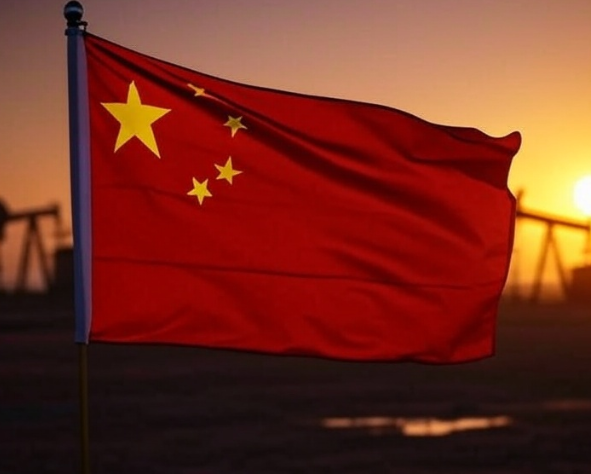
In a dramatic turn of events, the Taliban has taken a bold step that has sent shockwaves through diplomatic and business circles. The Taliban administration, ruling Afghanistan, has abruptly canceled a crucial oil extraction agreement with China, accusing Beijing of betrayal and negligence. This decision has left China stunned and could significantly impact its future investments in the region.
The deal, which was originally signed for a duration of 25 years, allowed a Chinese company to extract oil from Afghanistan’s Amu Darya basin. It was seen as a strategic move that could have brought significant benefits to China by tapping into Afghanistan’s untapped energy resources. However, after what the Taliban describes as a series of unfulfilled promises and irresponsible conduct, the deal has been officially terminated.
According to the Taliban’s Ministry of Mines and Petroleum, the Chinese company failed to honor several key commitments outlined in the contract. The ministry’s spokesperson stated that the company did not meet its investment obligations, failed to carry out sufficient drilling and exploration activities, and lacked the necessary guarantees to ensure the project's success. Furthermore, the company allegedly failed to provide employment opportunities for Afghan citizens, which was a crucial part of the agreement. These lapses were viewed by the Taliban as direct violations of the contractual terms, amounting to both negligence and betrayal.
Humayun Afghan, the spokesperson for Afghanistan’s Ministry of Mines and Petroleum, openly criticized the Chinese company’s conduct. He revealed that a joint inter-ministerial committee was established to investigate the matter thoroughly. Upon review, the committee found repeated violations by the Chinese company, concluding that it consistently disregarded the terms of the agreement and failed in its obligations. Based on the committee’s findings, the Economic Deputy Office’s recommendation, and orders from the Prime Minister’s Office, the Taliban decided to terminate the oil extraction contract with China for the Amu Darya basin.
This move comes at a time when economic experts within Afghanistan are emphasizing the need for stricter scrutiny of mining projects, especially considering the country’s urgent economic needs. There is growing demand for involving local companies in such ventures to ensure that Afghanistan’s resources are managed responsibly and that local employment opportunities are created. The Taliban’s decision to end the deal reflects a broader sentiment within Afghanistan that foreign partners must adhere strictly to their contractual obligations.
Meanwhile, China has responded cautiously, hinting that the matter should be reviewed further. Beijing appears to be treading carefully, suggesting that the cancellation should be subject to a thorough investigation. However, the Taliban’s stance remains firm, stating that the contract is now officially null and void. They have also accused China of making various excuses and trying to deflect responsibility after failing to fulfill its commitments.
This unexpected breakdown of the oil deal underscores the fragile nature of China’s relationship with the Taliban-led Afghanistan. While China has shown interest in investing in Afghanistan’s vast untapped natural resources, this incident has highlighted the risks and complexities involved in dealing with the Taliban regime. The cancellation of the deal may serve as a warning to other foreign investors that the Taliban expects full compliance with agreements, and any perceived breach could lead to swift and decisive action.
As of now, China finds itself cornered diplomatically in Afghanistan, facing criticism for its alleged negligence, while the Taliban is asserting its authority by demanding strict adherence to its terms. This episode may have long-term implications for China’s Belt and Road ambitions and its strategic interests in Central Asia.




